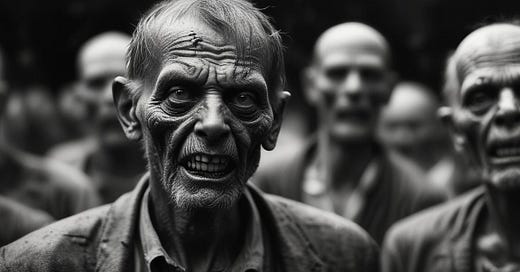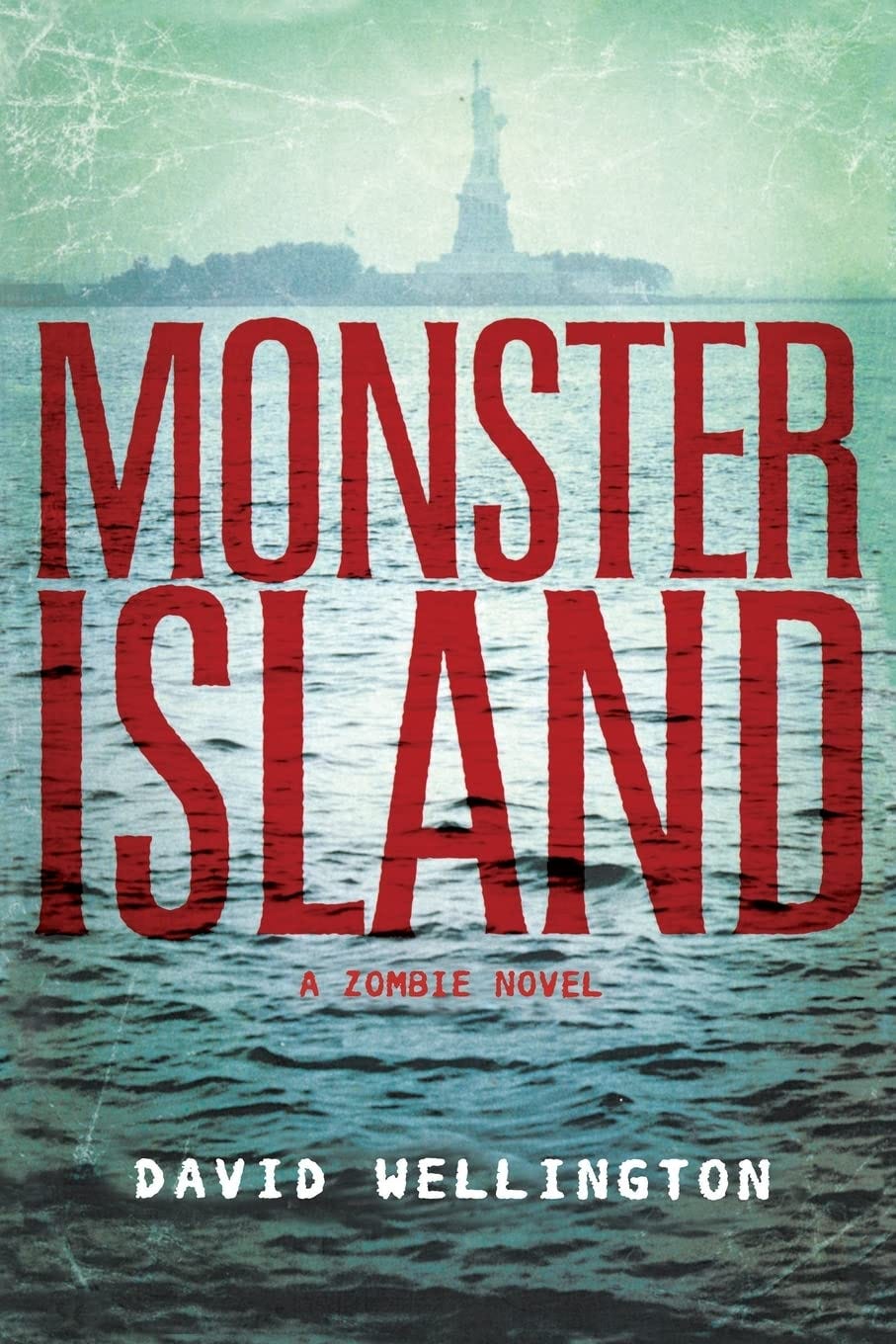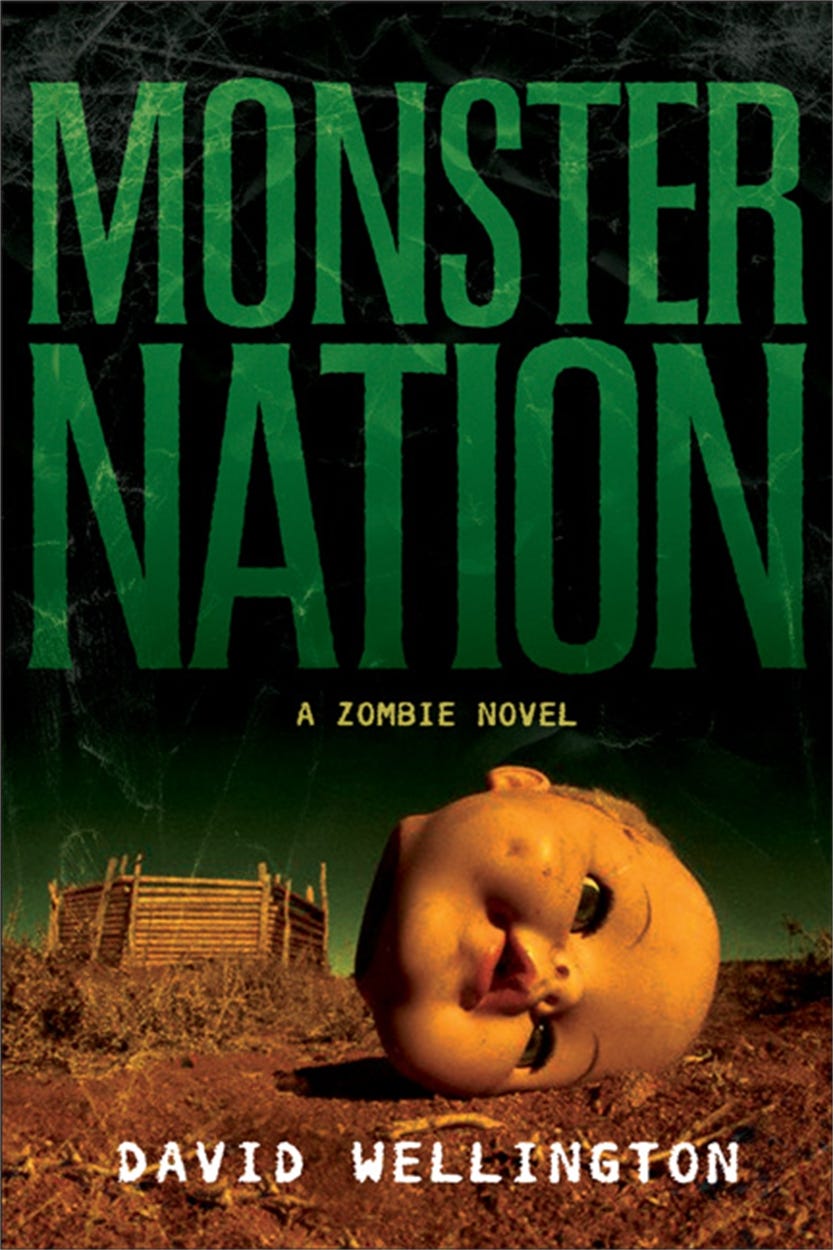I’m going to add a new element to some Friday Fiction posts, and include occasional author interviews. Next week I have a fun interview with David Wellington lined up, but thought I’d actually include a review of some of his books first as a way of setting the scene. So here are my thought on the books that first brought him to my attention.
(I felt sure I’d posted about these books before, but can’t find any evidence of that article. Must have been a dream.)
Monster Island
David Wellington’s “monster” series is made up of: Monster Island, Monster Nation, and Monster Planet. I had bought them on a day trip to that world of books, Hay-on-Wye. Together they make up an interesting and innovative take on the zombie apocalypse genre. If you like this kind of escapist fiction then I really recommend this trilogy, and I should add that any of the books can be read standalone, though obviously reading them all does add some extra context.
Monster Island shows us a world over-run by the undead, set in New York a month after the zombie outbreak began, and introduces the concept of supernatural variants such as resurrected mummies, intelligent zombies, and ghosts. The mission to find AIDS drugs for a Somalian warlord is an effective device for sending the protagonist on this dangerous quest, since it brings the themes of decay, danger and disease to the fore. The tone is bleak right from the start: on the first pages the protagonist reaches Manhattan Island and sees the lines of waving people, but it is soon clear that they are not survivors:
“Osman,” I shouted, “Osman, we’re getting too close,” but the Captain just yelled for me to shut up again. On the walkway I saw hundreds of them, hundreds of people. They waved at us, their arms moving stiffly like something from a silent movie. They pushed toward the railing, pushed to get closer to us. As the trawler rolled closer I could see them crawling over one another in their desperation to touch us, to swarm onboard.
I thought maybe, just maybe they were alright, maybe they’d run to Liberty Island for refuge and been safe there and were just waiting for us, waiting for rescue but then I smelled them and I knew. I knew they weren’t alright at all. Give me your tired, your poor, your wretched refuse, my brain repeated over and over, a mantra. I was butchering Emma Lazarus but I couldn’t stop, my brain wouldn’t stop. Give me your huddled masses. Huddled masses yearning to breathe. “Osman! Turn away!”
One of them toppled over the side of the railing, maybe pushed by the straining crowd behind. A woman in a bright red windbreaker, her hair a matted lump on one side of her head. She tried desperately to dog-paddle toward the trawler but she was hindered by the fact that she kept reaching up, reaching up one bluish hand to try to grab at us. She wanted us so badly.
The novel does a great job of combining a hopeless predicament with tense action scenes.
Monster Nation
Monster Nation takes place before Monster Island chronologically, and covers the initial outbreak of the zombie epidemic. Personally I find this stage of any zombie series to be the most interesting. As America is over-run with zombies and some well-drawn characters attempt to check the spread, we also meet another of these “special” zombies – ones that have kept their intelligence and also often gained a new ability. In this case a female zombie who can make herself invisible.
Following her plight, and her attempts to determine if she still counts as human or not, provides the main spine for exploring the collapse of a society.
(By the way, if your interests have a miserable bent and you enjoy this kind of nation-collapse story, I recommend Graham Masterton’s 1981 novel Famine. And if you just enjoy zombies chomping on bodies then watch Charlie Brooker's hilarious and scary zombie-filled reality TV satire Dead Set.)
Monster Planet
Monster Planet ties up the trilogy, set twelve years after the events of Monster Island. The exceptional zombies of the previous novels now have a uniting name: liches. Each has special powers and this is the novel that introduces a wide range of them as dangerous antagonists. It also reintroduces some characters from previous novels and manages to end their stories in ways that are both unexpected and satisfying. It is a world where humans now only survive in a few isolated and armed camps, or by acting as doomed slaves for liches. Great stuff!
Next Friday you’ll get to read my interview with David!








They sound good if you like that sort of thing!